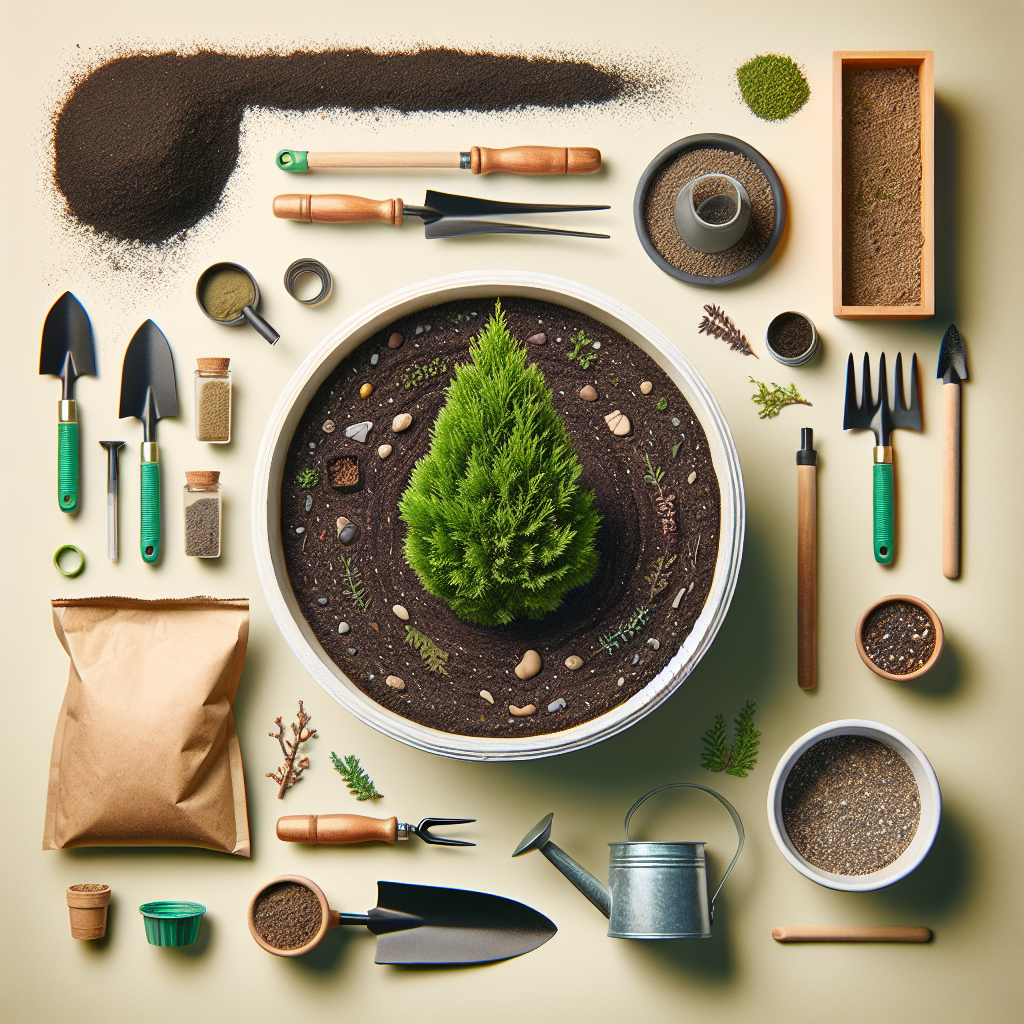Junipers are popular landscaping plants known for their hardy nature and beautiful evergreen foliage. While they can thrive in a variety of conditions, growing junipers in containers requires special attention to ensure they receive the ideal soil mix for healthy growth. Whether you are a beginner gardener looking to start growing junipers or a seasoned enthusiast wanting to expand your collection, understanding the importance of the right soil mix is crucial for success.
In this comprehensive guide, we will delve into the specifics of creating the ideal soil mix for growing hearty junipers in containers. From the necessary ingredients to proper care techniques, we will cover everything you need to know to cultivate thriving junipers that will enhance any outdoor space. So grab your gardening gloves and let’s get started on creating the perfect environment for your container-grown junipers!
**Selecting the Right Soil Components**
When it comes to choosing the right soil components for container-grown junipers, it’s essential to prioritize good drainage and aeration. Junipers prefer well-draining soils that prevent water from pooling around their roots, leading to root rot and other issues. A high-quality potting mix designed specifically for cacti and succulents is an excellent choice for junipers, as it provides the drainage they need while retaining enough moisture for healthy growth.
To create an ideal soil mix for junipers, start with a base of well-draining components such as perlite or coarse sand. These materials help prevent compaction and allow air to circulate freely around the roots, promoting healthy root development. Mix in some peat moss or coconut coir to improve moisture retention without sacrificing drainage. Additionally, adding a small amount of compost or slow-release fertilizer can provide essential nutrients for your junipers over time.
**Balancing Moisture Retention and Drainage**
Achieving the right balance between moisture retention and drainage is key when creating a soil mix for container-grown junipers. While these plants dislike wet feet, they still require adequate moisture to thrive in a confined space like a pot. By incorporating components that promote both drainage and moisture retention, you can ensure that your junipers receive the perfect amount of water without becoming waterlogged.
One effective way to strike this balance is by including pine bark fines or crushed pine bark in your soil mix. These materials not only improve drainage but also help regulate moisture levels by absorbing excess water when needed. Mixing in some coarse perlite or vermiculite can further enhance drainage while keeping the soil structure loose and airy. Remember to monitor your junipers’ watering needs regularly and adjust accordingly based on environmental conditions such as temperature and humidity.
**Maintaining Proper pH Levels**
The pH level of your soil mix plays a crucial role in determining how well nutrients are absorbed by your container-grown junipers. Junipers prefer slightly acidic to neutral soils with a pH range of 6.0-7.0, as this allows them to access essential nutrients like nitrogen, phosphorus, and potassium more efficiently. Testing your soil pH regularly using a simple testing kit can help you adjust it as needed by adding amendments like lime or sulfur.
To maintain proper pH levels in your soil mix over time, consider incorporating dolomitic limestone when initially preparing it. This natural mineral helps buffer acidity levels and prevents rapid fluctuations in pH that can stress out your junipers. Additionally, using organic matter such as leaf mold or compost can contribute beneficial microorganisms that aid in nutrient uptake while keeping pH levels stable.
**Providing Adequate Nutrients**
While container-grown plants generally require more frequent fertilization compared to those grown in open ground, it’s essential not to overdo it when feeding your junipers. Excessive amounts of fertilizer can lead to nutrient imbalances and cause issues like salt buildup in the soil, which can harm plant roots over time.
When choosing a fertilizer for your container-grown junipers, opt for one specifically formulated for evergreen trees or shrubs with balanced NPK ratios (nitrogen-phosphorus-potassium). Slow-release fertilizers are ideal for providing consistent nutrient availability without risk of burning plant roots due to excessive salts concentration.Conducts regular checks on key nutrient deficiencies such as yellowing leaves (iron deficiency), stunted growth (nitrogen deficiency), or poor fruit development (potassium deficiency) so you can address them promptly through fertilization calibration.
In conclusion
Growing hearty juniper trees in containers requires careful attention focused on creating an ideal environment through selecting high-quality potting mixes providing adequate nutrients maintaining optimal hydration levels ensuring appropriate pH balance.. By following these guidelines outlined above selecting suitable components adjusting watering patterns accordingly monitoring nutritional deficiencies you’ll be well on way towards cultivating thriving beautifuljuniper-filled displays any outdoor space FAQ:
1.What type of pots work best?
2.How often should I water my container-grownjuniper?
3.Is pruning necessary?














